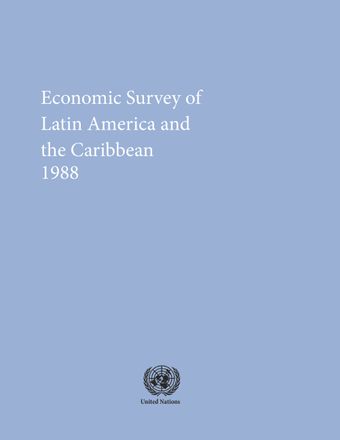Mexico

- Author: Economic Commission for Latin America and the Caribbean
- Main Title: Economic Survey of Latin America and the Caribbean 1988 , pp 421-446
- Publication Date: December 1988
- DOI: https://doi.org/10.18356/9e57a288-en
- Language: English
The way the Mexican economy evolved during 1988 was basically influenced by the effort to bring down runaway inflation against the background of a seriously deteriorated external situation. Inflation was in fact sharply reduced from monthly rates of around 15% at the beginning of the year to less than 2% per month throughout the second half of the year, thanks to the combined effect of agreements on key prices and rigorous control of aggregate demand, backed up by a high level of reserves. The external payments situation, in contrast, experienced a negative turnaround due to the substantial reduction in external financing, the sharp increase in imports which accompanied the opening-up of trade, and the pronounced drop in the international price of petroleum. The combination of restrictive policies and an unfavourable external context meant that there was practically no growth in production, thus prolonging the recession which had affected the Mexican economy since 1982.
-
From This Site
/content/books/9789210583022s002-c013dcterms_title,dcterms_subject,pub_keyword-contentType:Journal -contentType:Contributor -contentType:Concept -contentType:Institution105



